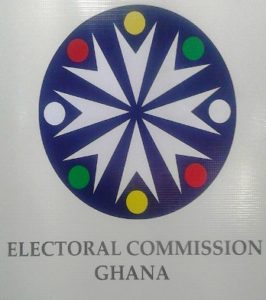Small political parties protest EC’s ultimatum
 Small political parties have criticised the Electoral Commission’s (EC) decision to abolish political parties without offices in two-thirds of the 216 districts by May 31, and urged the Commission to rescind its decision.
Small political parties have criticised the Electoral Commission’s (EC) decision to abolish political parties without offices in two-thirds of the 216 districts by May 31, and urged the Commission to rescind its decision.
The parties described the decision as unrealistic, saying it would defeat the purpose of multiparty democracy being championed by the country’s constitution.
The Convention People’s Party (CPP), National Democratic Party, Independent People’s Party, Progressive People’s Party and Great Consolidated Popular Party registered the protest, at the “Agenda Setting Workshop”, organised for the parties by the Institute of Democratic Governance (IDEG).
The two-day meeting was on the theme: “Towards a More Inclusive Multiparty Democracy in Ghana: the role of Small Political Parties.”
Professor Edmund Delle, the CPP National Chairman, said the EC had also directed the political parties to submit their audited accounts to the EC before May 31, but he described the ultimatum as a big challenge.
He said the parties were subsumed by the leading two political parties – National Democratic Congress and New Patriotic Party and appealed to the Electoral Commission to dialogue with them to reconsider its decision in order to promote multiparty democracy.
Prof Delle noted that failure of the EC to reverse the decision without dialogue with the small political parties meant the parties would be “wiped off” from Ghana’s political landscape and would undermine democracy under the multiparty system.
A Former First Lady and Presidential Candidate of the NDP, Nana Konadu Agyeman Rawlings, said the Electoral Commission ought to address the issue with utmost urgency and avoid tendencies that could collapse small parties contributing to shaping political discourse.
“It is the work you do on the ground that matter and not the offices you show off, we are all being threatened. If by 31st May you don’t have office you will be banned,” she said.
Dr Kwesi Jonah, the Project Coordinator and Senior Research Fellow at IDEG, noted that the law talked about “organisation” and not “offices” as being interpreted by the Commission and asked:
“How can a party have 144 offices before it can operate? It is not realistic!”
“The moment you begin to talk about abolishing small parties then you are undermining democracy. Nowhere in the Constitution or in the Political Parties Law does it talk about the word offices, what is there is organisation,” he added.
Similar sentiments were expressed by the other political parties with some also describing it as a mischievous attempt to relegate them to the background.
The workshop was done in Partnership with Danish Institute for Multi-party democracy and aims to strengthen their capacity for effective contribution to public policy debate and enrich Ghana’s democracy.
Mr Jorgen Estrup, Project Coordinator and Former Danish Member of Parliament (RV), said a multi-party democracy helps to promote political understanding and unites the nation.
Participants shared the opinion that there must be inclusive governance for all parties when a party won power.
Source: GNA
